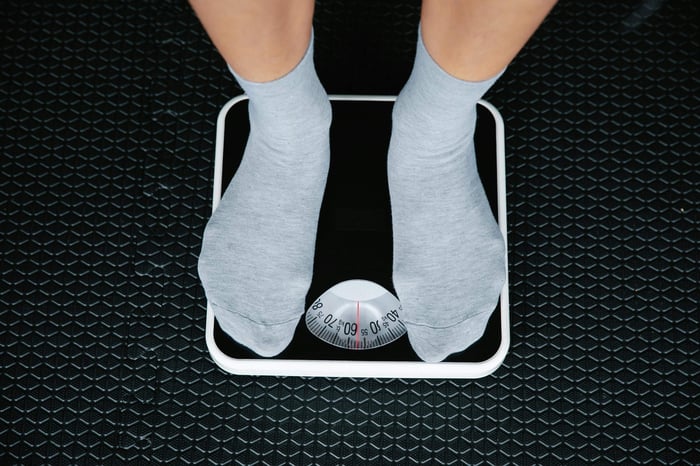A study showed that middle-aged adults who consistently took over 7,000 daily steps reduced their risk of all-cause mortality by more than 70%. More below…
At MyFitFoods, we believe that if a doctor could prescribe one thing to boost energy, reduce stress, support fat loss, all while helping preserve lean muscle, it might just be daily steps.
The research is quite clear: walking 8,000 to 10,000 steps a day can dramatically improve cardiovascular health, regulate weight, and reduce the risk of chronic disease.
Walking is exercise, and it's one of the simplest, most powerful habits of any healthy routine.
Sitting is the New Smoking
These days, walking feels optional. Why walk across campus when an electric scooter can zip you over in no time?
We’ve evolved beyond the necessity to move, and the irony is it's killing us. Physical inactivity is now one of the leading global causes of preventable death (1). But alas, there's good news, because when it comes to maintaining or reclaiming health, every step counts.
Walking for Fat Burn
Walking is a form of LISS cardio, Low-Intensity Steady State, a counterpart to the more intense HIIT (High-Intensity Interval Training). While LISS may not get the same spotlight, it shines in one important area: fat oxidation.
Because walking is sustained and moderate in intensity, your body prefers to burn fat as its primary fuel source during the activity. However, you’ll also burn some calories! On average:
One mile ≈ 2,000 steps/20 minutes ≈ 100 calories
Here’s what else walking can do for fat loss and overall wellness:
Boosts metabolism – Regular walking can slightly raise your resting metabolic rate.
Supports appetite regulation – It helps manage hunger hormones and curbs cravings.
Preserves lean muscle mass – Walking encourages fat loss without sacrificing muscle.
Walking for wellness doesn’t need to be intense; it just needs to be consistent, and here's some amazing data to back that up:
Steps & Mortality Study
This well-known study, published in JAMA, sheds light on how walking habits impact longevity in middle-aged adults: Steps per Day and All-Cause Mortality in Middle-aged Adults in the Coronary Artery Risk Development in Young Adults (CARDIA) Study (2)
Researchers tracked 2,110 middle-aged adults (mean age ~45 years) over almost 11 years.
Three-Step Count Groups:
Low Step Group: <7,000 steps/day
Moderate Step Group: 7,000–9,999 steps/day
High Step Group: ≥10,000 steps/day
Key Findings:
Moderate Steps (7k–10k/day): Associated with a 72% lower risk of all-cause mortality compared to less than 7,000 daily steps
High Steps (≥10k/day): Associated with a 55% lower risk of all-cause mortality compared to less than 7,000 daily steps.
No Added Benefit from Intensity: Step speed was not significantly associated with mortality risk.
Benefits Consistent Across Groups: Results held across sex and race.
In short, middle-aged adults who walked 7,000 steps per day had a dramatically lower risk of early death. This reinforces that even modest, accessible daily activity can offer powerful benefits for health and quality of life.
Timing is Key
My name is Max, and I’m one of the writers here at MyFitFoods. Over time, I’ve become a daily walker. For me, daily steps haven't just become a healthy habit; it’s an enjoyable way to spend time at strategic points in the day.
I start my mornings with a walk. The natural light helps anchor my circadian rhythm, and a little movement helps flush out lingering adenosine (the chemical behind those yawns). The fresh air encourages me to take a few mindful breaths.
I end my days with a similar walk. It helps me avoid going to bed with a full stomach, which is often a cause of poor sleep. Plus, stepping away from screens and artificial light at the end of the day helps set the stage for deep sleep. Walking in the evening gives me space to reflect and decompress.
Unfortunately, there's no randomized trial proving the calm that walking provides me, so don't just take my word for it...
Meet Jerome.
When I caught up with Jerome, one of our 21-Day Challenge participants, I was curious about how daily walking contributed to his success. I specifically asked him about the role 8,000–10,000 steps per day played. He shared:
“My daily step challenge allowed me to reduce my stress levels, decrease body fat, improve my energy, and strengthen relationships with many loved ones I struggle to stay in touch with during busy times of the year.”As someone who has also found walking to be a powerful tool for mental clarity, I relate to Jerome’s experience. But what impressed me was his practical approach to integrating steps into a busy schedule. He explained,
“A few examples included parking farther away when I arrived at my destination and taking the stairs instead of the elevator. Additionally, I modified my normal schedule - whereas I used to load my weekends with many small tasks, I decided to spread them out during the week. These tasks included, but were not limited to, washing my car, checking the mail, grocery shopping, and cutting my grass.”Before wrapping up, I asked Jerome if his relationship with movement had changed since completing the challenge. His response: “I’ve kept up the habit and actually bumped my daily goal to 10,000–12,000 steps. It’s become part of my lifestyle now.”
Achieving Better Health One Step at A Time
You don’t need to train like an athlete or overhaul your life. You don’t need 200$ Hokas. You just need to move. And when you pair that movement with nutrient-dense meals, rest, and hydration, the results add up like the steps on your pedometer. Science supports it, and so do real people like Jerome.
MyFitFoods is here to help you take those first steps. Our 21-Day Challenge was built to make this journey easier, with macronutrient-dialed meals, personal guidance, and daily movement baked into the program from start to finish.
The journey of 1,000 miles starts with one step, and fortunately for you, we've got that first step covered:
Take our Fit Quiz and let the next steps lead toward a healthier you.




